JORDI SAVALL CELEBRATES SARAMAGO.
JORDI SAVALL CELEBRATES SARAMAGO.
38th Festival Internacional de Musica de Canarias
Jameos Del Agua, Lanzarote, 10th February 2022
reviewed by Norman Warwick
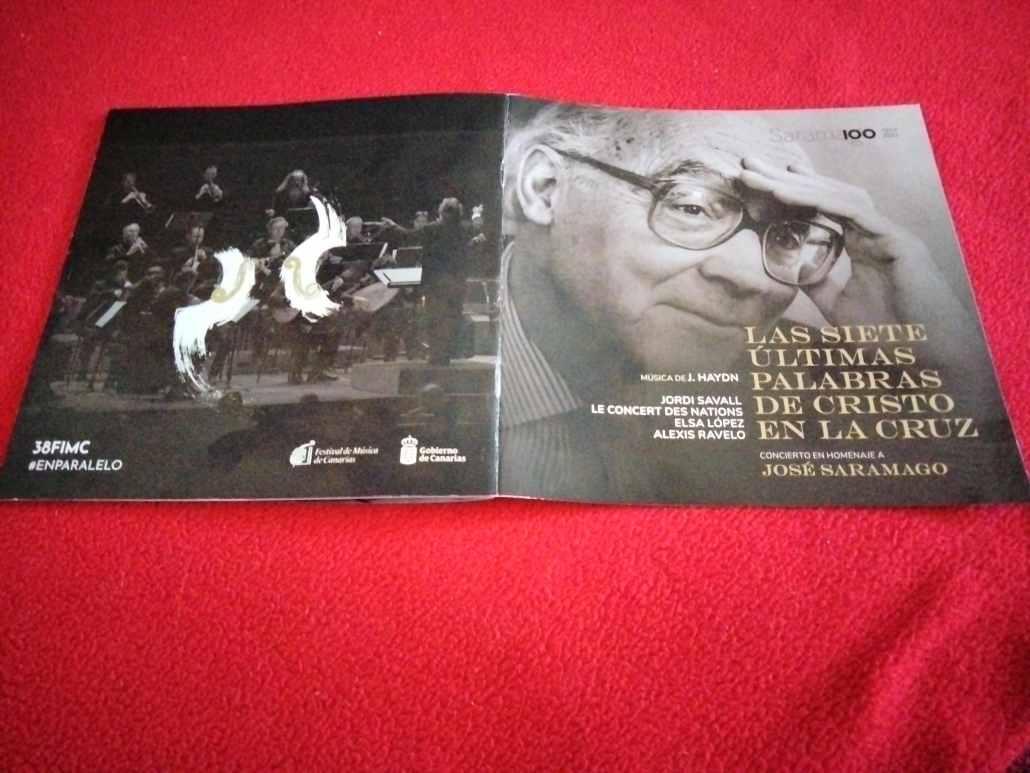
Jordi Savall (left) born 1941 is a Spanish conductor, composer and viol player. He has been one of the major figures in the field of Western early music since the 1970s, largely responsible for popularizing the viol family of instruments (notably the viola da gamba) in contemporary performance and recording. As a historian of early music his repertoire features everything from medieval, Renaissance and Baroque through to the Classical and Romantic periods. He has incorporated non-western musical traditions in his work; including African vernacular music.
His musical training started at age six in the school choir of his native Igualada (1947–55). After graduating from the Barcelona‘s Conservatory of Music (where he studied from 1959 to 1965) he specialized in early music, collaborating with Ars Musicae de Barcelona under Enric Gispert, studying with August Wenzinger at the Schola Cantorum Basiliensis in Basel, Switzerland (1968–70) and eventually succeeding Wenzinger in 1974 as professor of viola da gamba at the Schola Cantorum Basiliensis.
In 1974 he formed the ensemble Hespèrion XX (known since 2000 as Hespèrion XXI), together with his wife soprano Montserrat Figueras, Lorenzo Alpert and Hopkinson Smith. Hespèrion XX favored a style of interpretation characterized simultaneously by great musical vitality and maximum historical accuracy.
In 1987 he returned to Barcelona to found La Capella Reial de Catalunya, a vocal ensemble devoted to pre-eighteenth-century music.
In 1989 he founded Le Concert des Nations, an orchestra generally emphasizing Baroque period, but sometimes also Classical and even Romantic music such as, for example, Sinfonía [por] Grande Orquesta by Juan Crisóstomo Arriaga) (1806–1826).
More recently Savall has performed with family members. The family ensemble has included his wife Montserrat Figueras (who died in 2011) and their two children, Arianna and Ferran. Arianna plays the harp and sings, like her mother; Ferran plays the theorbo (bass lute) and sings, not only with his family but also in Barcelona jazz clubs.[1]
Savall has incorporated non-western musical traditions in his work; including African vernacular music in Les Routes De L’Esclavage or The Routes of Slavery (2017).[2]
Savall’s discography includes more than 100 recordings. Originally recording with EMI Classics, and then from 1975 on Michel Bernstein‘s Astrée label, since 1998 he has recorded on his own label, Alia Vox.[3]
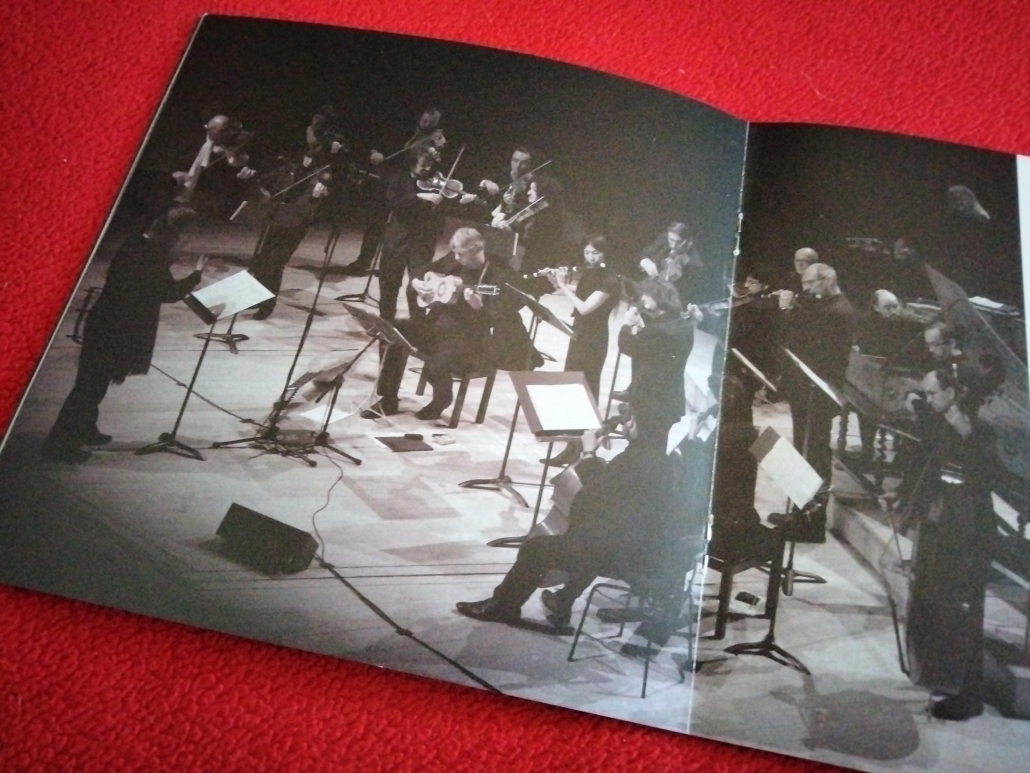
Among other formations, he is co-founder of the orchestral group Le Concert des Nations (1989), (right) with whom he will appear at the 38th Festival to interpret ‘7 last words of Christ on the Cross’, by J. Haydn. A work commissioned by an 18th century Cadiz brotherhood from the Austrian composer.
Savall recovered this work in its orchestral version and in the past decade he proposed a staging with narrations that include texts by José Saramago. This a fitting tribute to celebrate the centenary of the birth of the late Nobel prize winning author. Saramago lived on Lanzarote for a lengthy period after receiving that prize. His former home in Tias is now a museum and a library and guided tours are available for small parties.. Despite it being huge building crammed full of thousands of books and artefacts, the building with a beautiful, quiet garden looking down out of town and out to sea the property still somehow feels like a home in which you might still expect to see Jose still working at his desk or sitting beneath his favourite tree enjoying his garden
At the 38th FIMC we will have the reading of these texts by two greats of Canarian letters: Alexis Ravelo and Elsa López.
Program: J. Haydn: 7 last words of Christ on the Cross
Tonight´s performance at Jameos Del Agua fully deserved the standing ovation it received, albeit that the ovation didn´t receive the encore it certainly deserved. The concert had been, perhaps, too self contained and focussed to be ´reduced´ by a single piece selected at random.
Haydn´s beautiful music had been expertly and sincerely played, but there had been several spoken deliveries inserted. Because of difficulties with the Spanish language we could not fully understood what was being said but from the pin-drop silence of an enraptured audience we could tell it must be very meaningful. As the piece was ábout´ Christ On The Cross, and the two vocal protaganists were a man and a woman, I guessed that she represented Mary Magdalene (at least that name was referenced a couple oF times) in her dialogue with the male reader who I took to be Jesus On The Cross, but I may be very wrong about that.
The music we heard tonight, Haydn´s Seven Last Words Of Christ, has been described as including seven slow movements reflecting the seven last words. According to musician Mark Steinberg, writing in 2003, ´Haydn´s work serves as a meditation on the gravity of tragedy, as well as on the possibilities of hope and redemption. It is music of great weight as well as great transparency, coupling profound directness of affect with ennobling humility´.
It all reminded me of the poem, The Dream of the Rood one of the Christian poems in the corpus of Old English literature and an example of the genre of dream poetry. Like most Old English poetry, it is written in alliterative verse. Rood is from the Old English word rōd ‘pole’, or more specifically ‘crucifix’. The alliteration of the work helps us to remember lines and when I read it in my own language of English I am touched by its beauty and establish new understandings of it with each reading.
The players tonight were Le Concert De Nations, an orchestra with period instruments, able to perform the orchestral and symphonic repertoire from the Baroque to Romanticism: 1600 – 1900. The orchestra was created in 1989, the youngest of the groups conducted by the Catalan maestro and viola da gamba virtuoso Jordi Savall. Le Concert des Nations is the first orchestra of its kind made up of musicians who originate mainly from Latin countries (Spain, South America, Italy, Portugal, France as well as many other countries). The name Le Concert des Nations refers to the work by François Couperin as an assembly of “tastes” and bears the mark of the Age of Enlightenment. Le Concert des Nations is the orchestra of La Capella Reial de Catalunya.
Here at the concert, the sonority of the music and the gravitas of the readings that together offered a sense of spirituality even to a died in the wool agnostic like me.
These readings were taken from José Saramago, (born November 16, 1922, Azinhaga, Portugal—died June 18, 2010, Lanzarote, Canary Islands, Spain), Portuguese novelist and man of letters who was awarded the Nobel Prize for Literature in 1998.
The son of rural labourers, Saramago grew up in great poverty in Lisbon. After holding a series of jobs as mechanic and metalworker, Saramago began working in a Lisbon publishing firm and eventually became a journalist and translator. He joined the Portuguese Communist Party in 1969, published several volumes of poems, and served as editor of a Lisbon newspaper in 1974–75 during the cultural thaw that followed the overthrow of the dictatorship of António Salazar. An anticommunist backlash followed in which Saramago lost his position, and in his 50s he began writing the novels that would eventually establish his international reputation.
His work, The Gospel According to Jesus Christ), which posits Christ as an innocent caught in the machinations of God and Satan. The outspoken atheist’s ironic comments in The Gospel According to Jesus Christ were deemed too cutting by the Roman Catholic Church, which pressured the Portuguese government to block the book’s entry for a literary prize in 1992. As a result of what he considered censorship, Saramago went into self-imposed exile on the Canary Islands for the remainder of his life.
The two excellent readers of appropriate extrapolated form the great writing of the late Jose Saramago, who would have been two hundred years old this year, were Elsa Lopez and Alexis Ravelo.
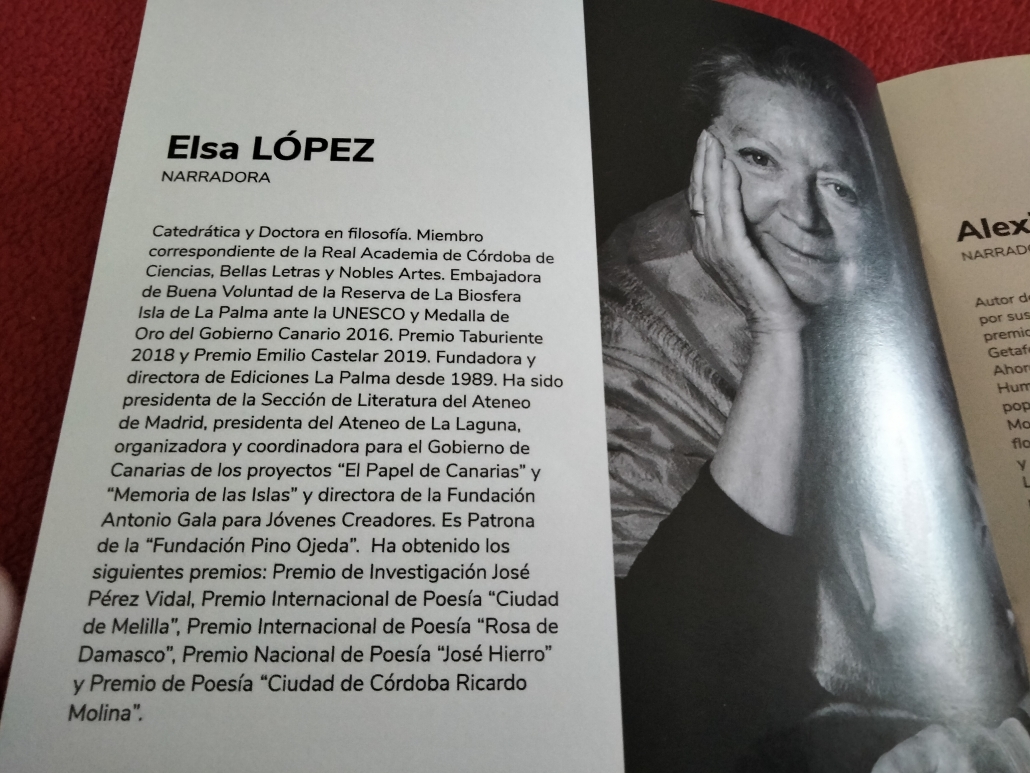
Elsa (left) was born and lived in Fernando Poo (now Bioko), Equatorial Guinea until 1947, the year she moved to the island of La Palma, Canary Islands. In 1955 she moved to Madrid where she began Baccalaureate studies.
In 1965 she obtained a licentiate in Philosophy from the Complutense University of Madrid and, after a year as a professor of Spanish Literature in Lausanne, Switzerland, in 1966 she became a professor at the liberal Colegio Estudio [es] in Madrid, successor to the Institución Libre de Enseñanza.
In 1972 she started teaching at different institutes of secondary education, obtaining a doctorate in Philosophy and Literature in 1980, and in 1982 the Chair of Philosophy at the Instituto Isabel la Católica [es] in Madrid, where she taught until 1993.
From 1987 to 1989 she chaired the Literature Section of the Ateneo de Madrid and directed the Siddharth Mehta publishing house, creating her own publishing house in 1989, Ediciones La Palma.
In 1993 López received the First José Pérez Vidal Research Prize and moved to the Canary Islands on a commission to direct and coordinate the government projects El Papel de Canarias (1993) and Memoria de las islas (1994–2000). That same year she founded the Casa de Jorós ethnographic museum and popular art center in Santa Cruz de La Palma.
From 2002 to 2006 she directed the Antonio Gala Foundation for Young Creators. She was dismissed because of disagreements with Antonio Gala, although the writer had previously announced that she wanted to leave the position.[10]
She currently directs Ediciones La Palma and Promoción Cero.
Her work has been recognized with numerous awards, such as the City of Melilla International Poetry Award in 1987 and the First José Pérez Vidal Research Prize in 1993, and has been included in several anthologies.
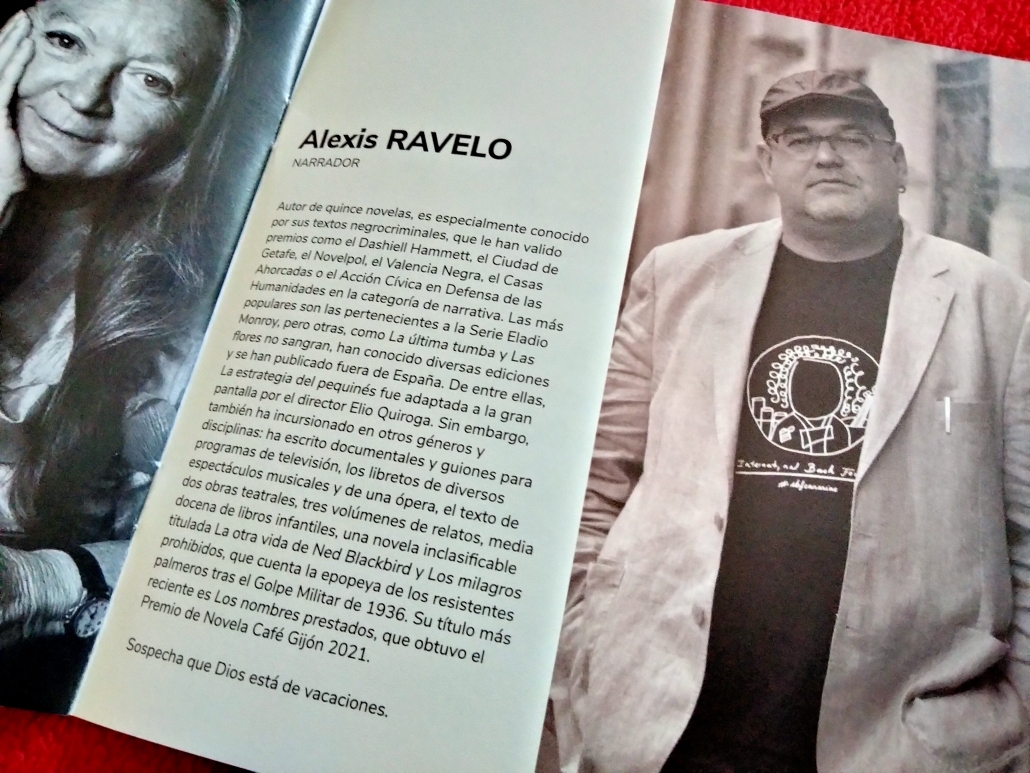
Alexis Ravelo, (right) the male narrator, is of humble origin. He worked as a waiter in his adolescence and youth. His training is self-taught. He began studies in Philosophy at the UNED. He was a student in narrative workshops given by Sebastián Quesada , Augusto Monterroso and Alfredo Bryce Echenique .
He is co-founder of the literary magazine La Plazuela de las Letras and creator of the Matasombras cultural outreach space , together with Antonio Becerra Bolaños, in Las Palmas de Gran Canaria .
He has written stage shows and scripts for children’s television programs. In 2006 he joined the Canarian Association of Writers, which he left at the end of 2008 due to disagreements with the board of directors.
He teaches literary workshops in various forums and academies, such as The Story Machine , Factoría de Ficciones 1 and Vidas Cruzadas . 2
Since 2013 he writes an opinion column in the digital newspaper Canarias Ahora. 3
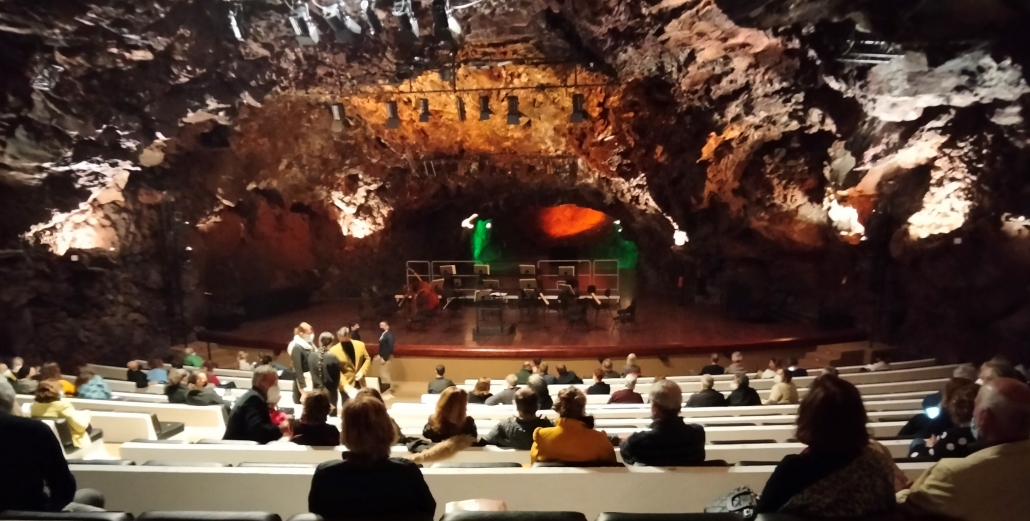
The theatre in the caves and the scenic, and beautifully lit area of egress, somehow retained that spirituality all the way back to our car. With memory of a sunset meal on the way to the theatre, to hear that music and to then exit beneath a bedspread of stars bravely piercing the calima of the previous week or so it felt that audience members, on leaving the theatre, were each thanking their own particular gods for the inspiration of an artist, the playing of an orchestra, the words of a poet and the miracle of nature made possible by a greater being than Man.

The following evening we gave up the natural splendour of the the concert hall in the caves to visit a very different, but nevertheless a favourite art venue at Cic El Almacen in Arrecife. and saw and heard music produced by a man who, incredibly, turned his double bass into a complete orchestra. On the way out we bought a copy of his album, Being Lost As Usual, and whilst doing so managed to arrange an exclusive interview with the musician Jorge De Rocha (right), and will try to get that out to our readers around the world as soon as possible, so watch this space. He is an exciting guy,

In fact if, as we do, you like many kinds of music you might wish to join our friends and colleagues Steve Bewick and Gary Heywood-Everett for a broadcast of their Valentines Suite of romantic jazz. This will include some old favourites from Chet Baker, Miles Davis and Billie Holiday, with some new contenders from John Leighton, Jill Torvaney and Jim McJannet and more besides.If this sounds interesting please share it with your friends. Join Steve and Gary at www.mixcloud.com/stevebewick/
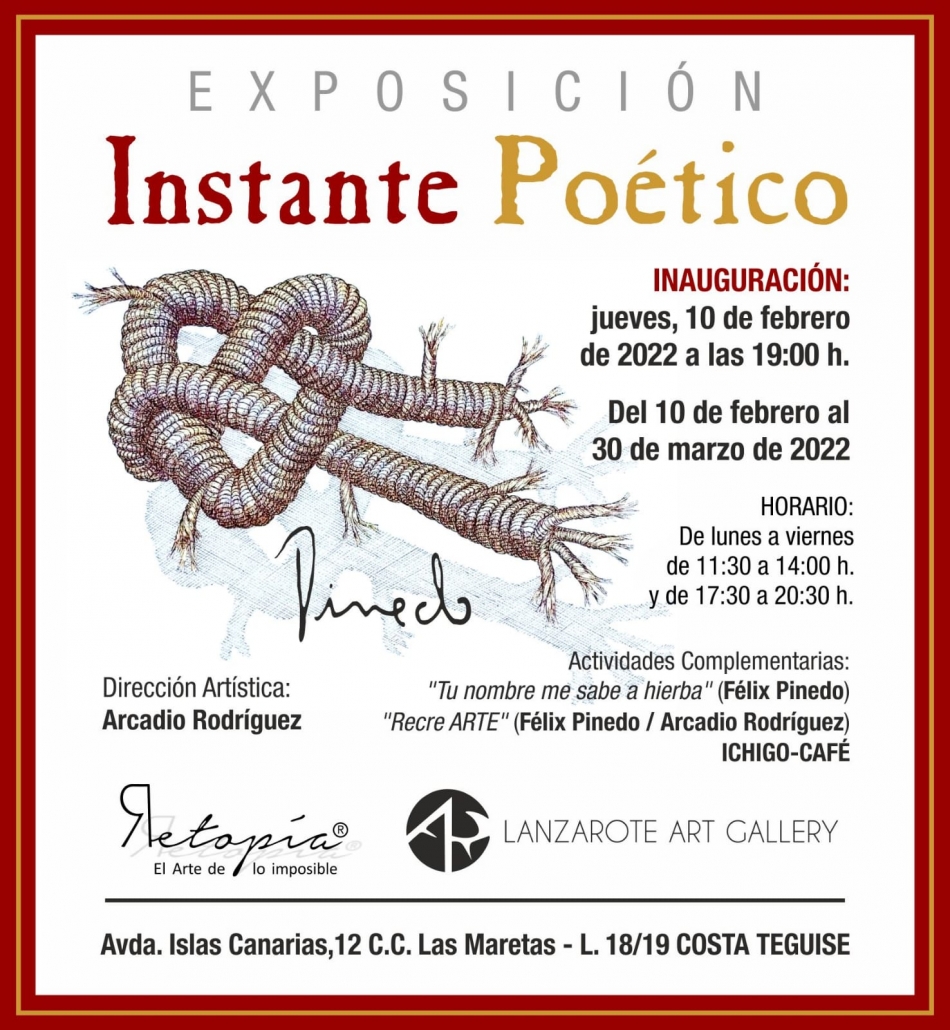
Meanwhile, you may wish to consider a visit to Costa Teguise, to visit perhaps the most prestigious of all the art galleries on the island, The Lanzarote Art Gallery has wisely developed its web site into an informed and informative library with a 3d virtual tour available at the site. Whilst that is fantastic, it remains true that nothing is ever quite as good as viewing art physically, to capture the nuances that allow our own thoughts to create a meaning.
So, I was interested to see an announcement in my e mails from The Lnazarote Art Gallery owner, Eduardo Ferin, of a new exhibition called Poetic Instant.
This is an exhibition that has to be seen as a whole, for it is the story of each of the moments (circles in the water) through which we pass when we fall in love. The telling of the story reminds us how vital is the emotion of the need to love and the consequences that both emotions, the need and the love, in the chronicles of our lives. The river (or road) t excites us. The journey in search of love has inspired art works and poetry and this exhibition contains art works and the poetry that inspired them. A few of the exhibits are unaccompanied by text, allowing the viewer to remember his own poetry.
´Yet everything is nothing more than a point,´ says Roberto Juarroz , the late Argentine writer, famous for his ´vertical poetry´ of the twentieth century.
´Poetry is an instant metaphysics, it refuses preambles, principles, methods and tests. Then, after the hollow sonorities, it produces an instant. And to construct a complex instant, to gather a large number of simultaneities, the poet destroys the simple continuity of chained time´. Arcadio Rodriguez Felix Pinedo
Although the inaugural night of the exhibition was on Thursday 10th February, it will run through until 30th March. If you are here on holiday and have hired a car, it will be well worth a trip into Costa Teguise, where the Gallery sits surrounded by a circle of excellent restaurants over-looking the shore line.

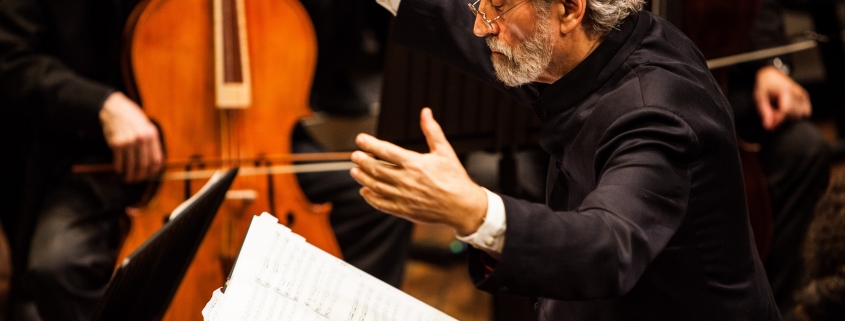


Leave a Reply
Want to join the discussion?Feel free to contribute!